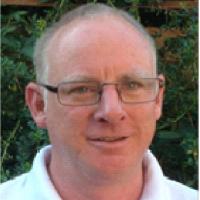Musculoskeletal Health (Formerly Physical Therapy)

David Stephensen is a physiotherapist at the Kent Haemophilia and Thrombosis Centre, and the Haemophilia Centre at the Royal London Hospital. He has more than 25 years’ clinical experience managing children and adults with haemophilia. David is past Chair of the Physiotherapy Committee of the European Association of Haemophilia and Allied Disorders (EAHAD) and UK Haemophilai Chartered Physiotherapists Association. David is currently Deputy Director of Research & Innovation and the East Clinical Trials Unit at East Kent Hospitals University NHS Trust, a member of the NIHR Research for Patient Benefit - South East and Central Regional Advisory Committee, member of the Scientific Committee of Great Foundations focussed on supporting research and clinical practice in foot health and an Associate Editor of the journal of Haemophilia. He has received multiple NIHR, charity and commercial research grants and published more than 80 peer reviewed publications. He has a particular interest in the impact of disease on the biomechanical and neuromuscular aspects of physical performance, in particular, the effects of exercise in children, clinical use of wearable technology, pain rehabilitation, point-of-care ultrasound imaging of haemophilic joint disease, as well as incorporating functional performance as part of routine monitoring of health. David is the lead investigator for the DOLPHIN Study, a randomised controlled trial looking at the effects of exercise in children with haemophilia. Further research funding includes investigating pain rehabilitation, point-of-care ultrasound imaging of haemophilic joint disease, as well as incorporating functional performance as part of routine monitoring of health. David is passionate about increasing research capacity of the allied health professions and is supporting several doctoral programmes, pre-doctoral clinical academic fellowships and internships, as well as a mentor with the Applied Research Collaboration in Kent Surrey Sussex. He is a strong advocate that patients are involved in decisions about their care and research.
1. de Kleijn, P, Duport, G, Jansone, K, et al. European principles of care for physiotherapy provision for persons with inherited bleeding disorders: Perspectives of physiotherapists and patients. Haemophilia. 2022; 1- 7. https://doi.org/10.1111/hae.14566
2. Bladen M, Carroll L, Dodd C, Drechsler W, Hashem F, Patel V, Pellatt-Higgins T, Saloniki E, Stephensen D. Results of feasibility and safety of randomised controlled trial of a musculoskeletal exercise intervention versus usual care for children with haemophilia. Haemophilia. 2020 Sep;26(5):e223-e225.
3. Scott MJ, Xiang H, Hart DP, Palmer B, Collins PW, Stephensen D, Sima CS, Hay CRM. Treatment regimens and outcomes in severe and moderate haemophilia A in the UK: The Thunder Study. Haemophilia, 2019; 25(2):205-212
4. Stephensen D, Taylor S, Bladen M, Drechsler W. Relationship between physical function and biomechanical gait patterns in boys with haemophilia. Haemophilia. 2016;22(6):e512-e518
5. Stephensen D, Drechsler WI & Scott OM. Outcome measures monitoring physical function in children with haemophilia: a systematic review. Haemophilia, 2014; 20(3): 306-321
